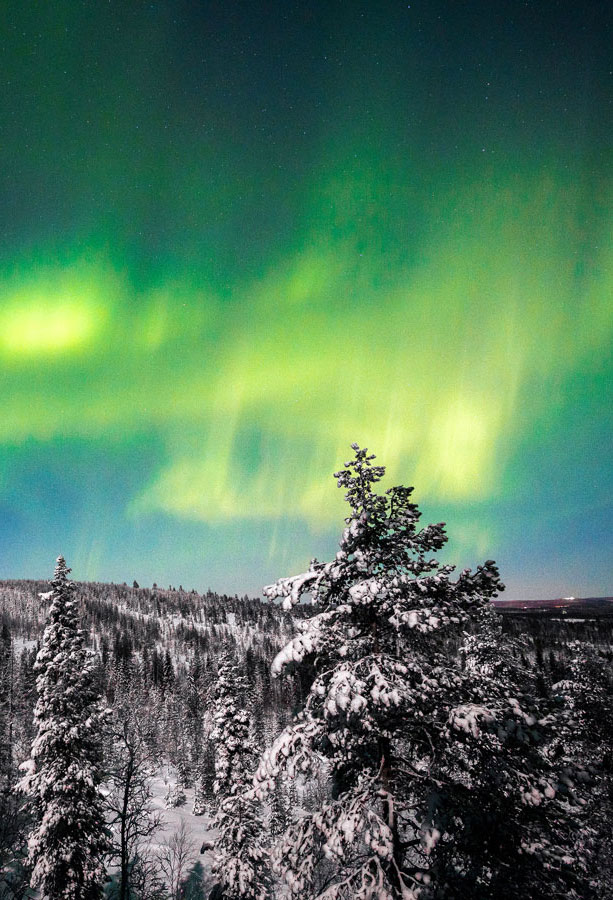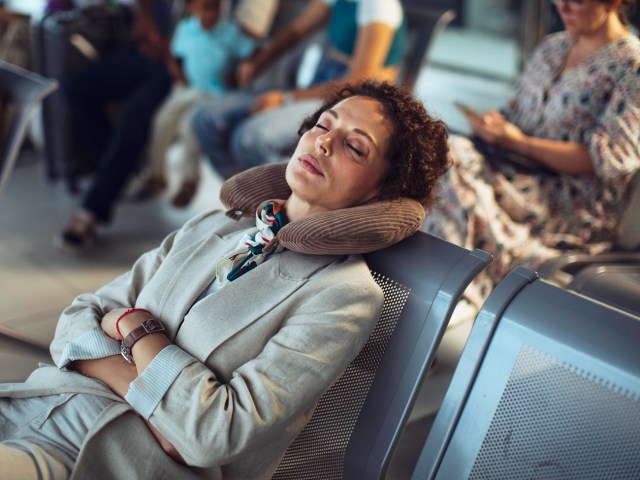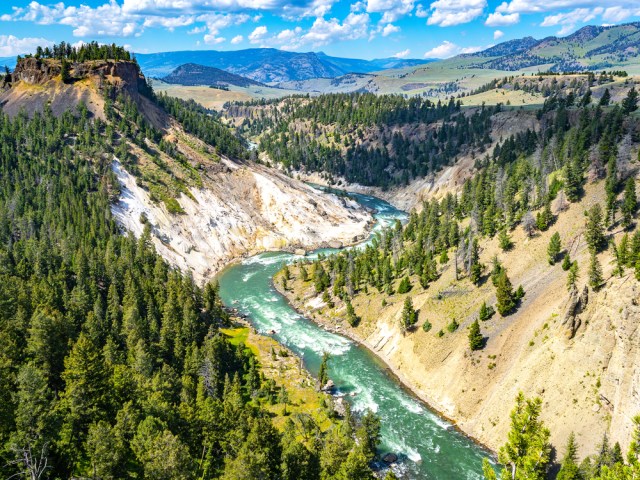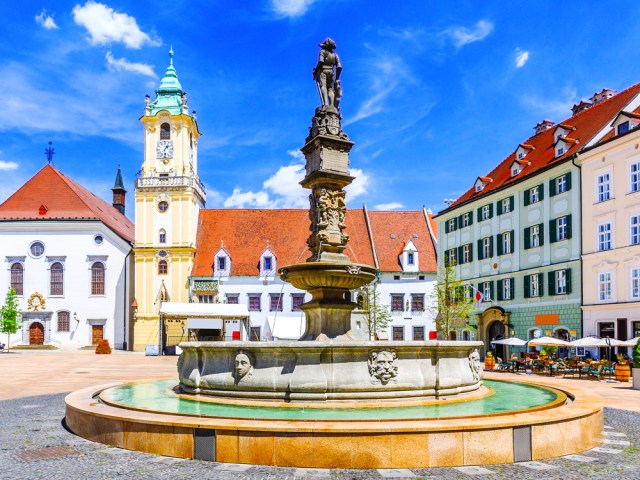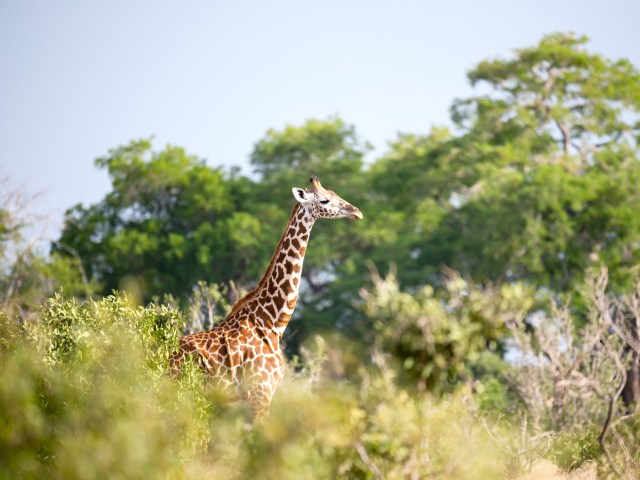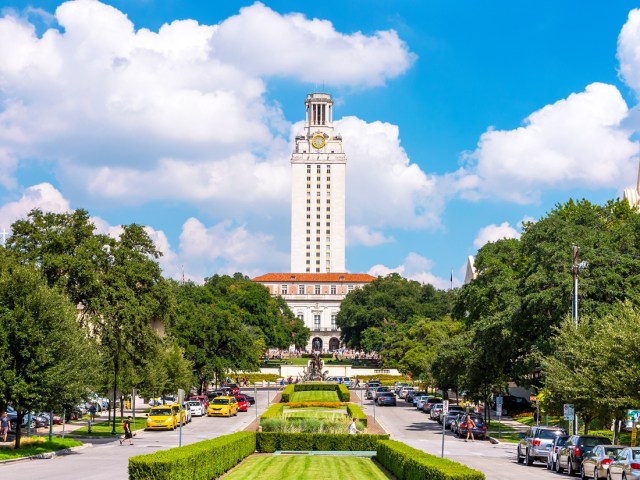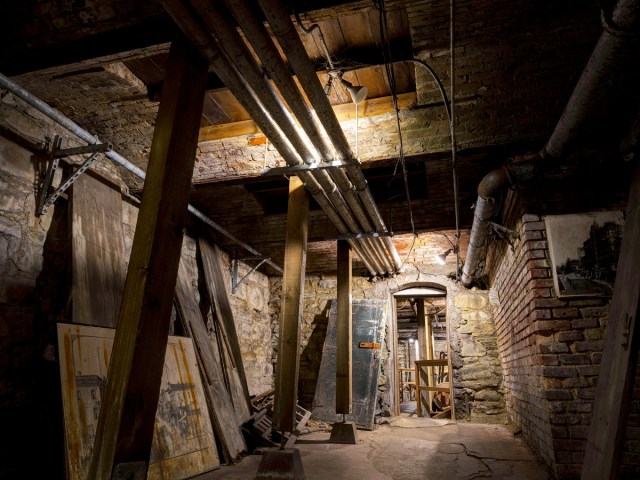Witnessing the natural wonder of the northern lights (officially known as aurora borealis) is a bucket-list experience for many travelers. This astronomical phenomenon occurs when energetic particles from the sun collide with gaseous particles in the Earth’s atmosphere. When this happens, the particles emit different colors — and since the human eye is most capable of seeing the color green, this is the hue most often associated with the northern lights. But in order to witness this incredible phenomenon, the conditions have to be exactly right. These eight northerly places offer the best chance of witnessing the dazzling light show in person.
Fairbanks, Alaska
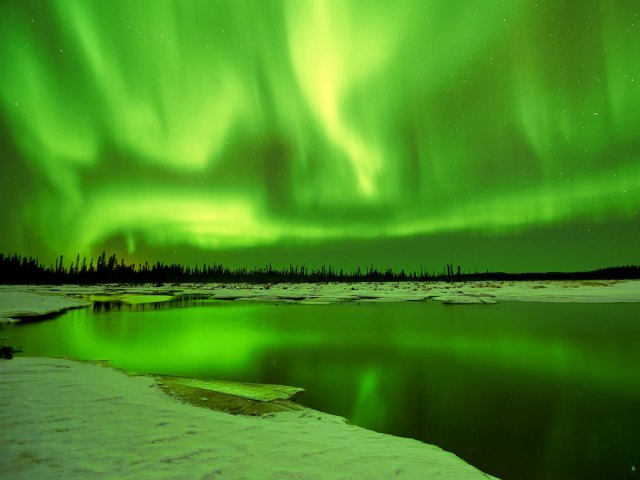
Two important factors make Fairbanks, Alaska, one of the best places in the world to view the northern lights. First, it’s located just beneath the Aurora Oval, an imaginary line that encircles the northern tip of the globe, demarcating the highest concentration of aurora activity. Secondly, the city’s location away from the coast results in low precipitation and a higher number of clear evenings. When the sky is clear, visitors can witness the aurora an average of four out of every five nights during peak season, which runs from August 21 to April 21. As light pollution is one of the biggest hindrances to witnessing the phenomenon, visitors are also encouraged to venture a bit away from the city for optimal viewing. Fairbanks offers a few unique ways to witness the northern lights, including dog sled tours, hot spring resorts, and ice fishing.
Rovaniemi, Finland
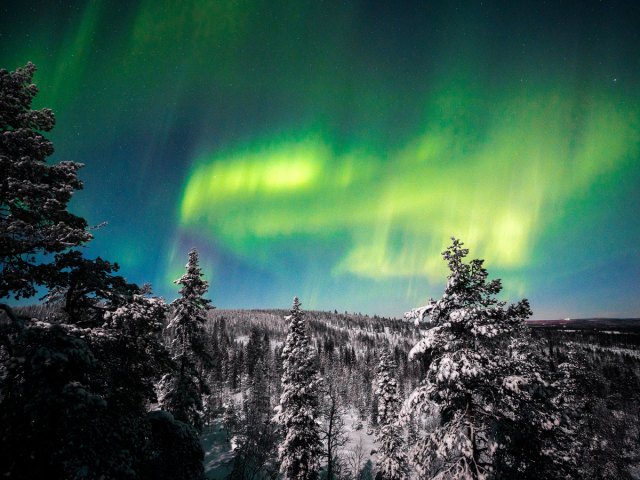
Rovaniemi is located just outside the Arctic Circle, which means the northern lights make frequent appearances in this small Finnish city. On average, auroras are reported 150 nights each year, most often materializing in winter, when darkness rules for most of the day. For this reason, winter is considered peak tourist season in Rovaniemi, with many people trekking this far north simply for a chance to witness the near-nightly sky show.
Upper Peninsula, Michigan
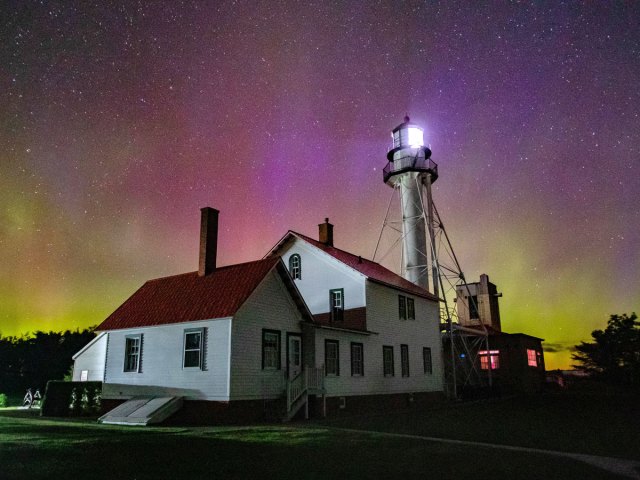
For a chance to see the northern lights within the lower 48, the Upper Peninsula of Michigan may be your best bet. Not only does it sit at a high-enough latitude, but the peninsula also has low light pollution — both of which are important for improving your chances of witnessing the phenomenon. Home to 100 miles of shoreline along Lake Superior, the Upper Peninsula offers plenty of lakeside camping opportunities to get out into the wilderness to see the lights. Pictured Rocks National Lakeshore, for one, provides unrestricted views of the lake and the lights, should they appear. And just across the peninsula over the Mackinac Bridge is Headlands Dark Sky Park, which is also a renowned site for viewing the lights on a clear evening.
Tromsø, Norway
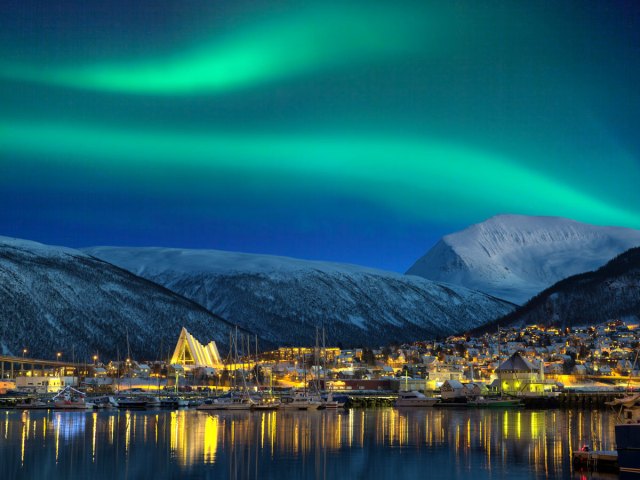
Located within the Aurora Oval in northern Norway, Tromsø offers an ideal vantage point for the northern lights for more than half the year. From early September to early April, they can often be spotted within city limits — although for the best show, it’s recommended that you travel away from the light pollution. Tromsø is so far north that it experiences two months of the Polar Night, a period of the calendar year where the sun doesn’t rise at all. On a positive note, these unlit days make it much easier to spot the “night-time aurora,” which is particularly intense and vibrant in this corner of the world.
Reykjavik, Iceland
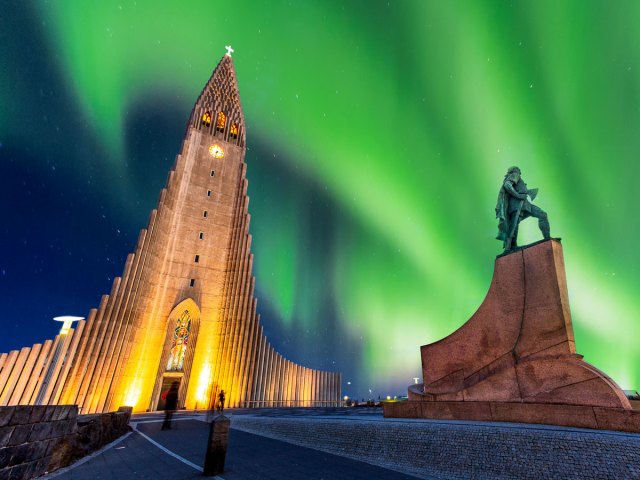
Reykjavik, Iceland, is often called the “Northern Lights Capital of the World” — for good reason. As the northernmost capital on the planet, Reykjavik often affords visitors the opportunity to spot the arresting green glow of the lights without even leaving the city. However, since light pollution can adversely affect how much you’ll see, booking a northern lights tour to a more isolated location is usually recommended. Auroras are most often spotted from late August to early April in Reykjavik, with the capital city’s coastal areas providing the most expansive views of the mystical sight.
Lapland, Sweden
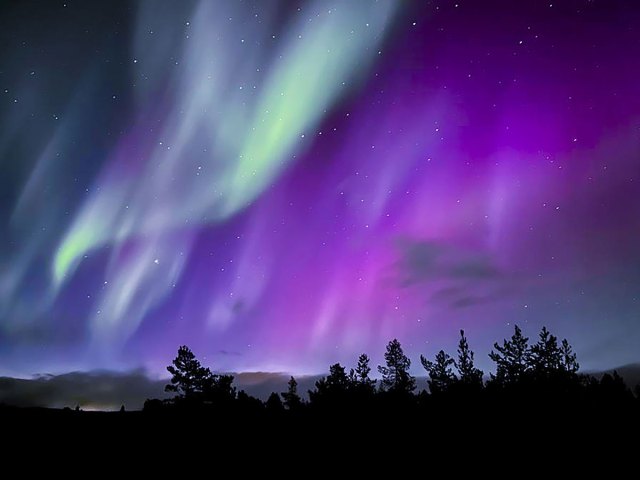
Lapland, the northernmost province of Sweden, is also located beneath the Aurora Oval and offers many opportunities to see the northern lights. Auroras frequently appear in the fall, winter, and early spring, when this area of Sweden is under a thick blanket of snow. Although the lights can often be seen on clear evenings throughout the region, the lack of light pollution in the town of Abisko provides particularly spectacular viewing of the dancing green light. On a clear night, hop on the chairlift from the town of Abisko to the top of Mount Njullá for one of the surest ways to witness the northern lights in action.
Yellowknife, Canada
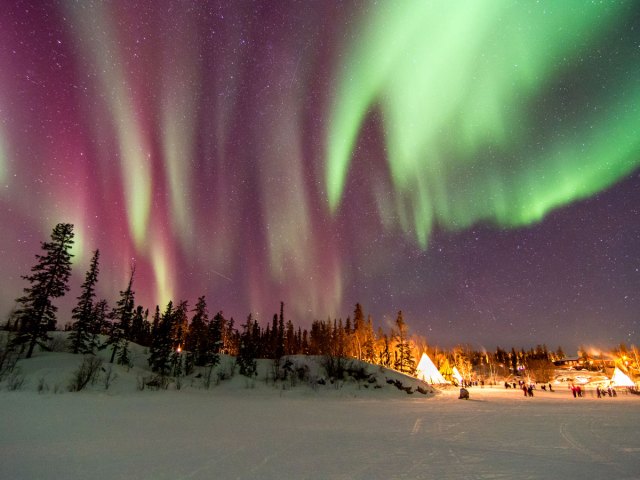
Located in Canada’s Northwest Territories and nearly entirely unspoiled by civilization, Yellowknife is known for electrifying auroras that take over the night sky. Unsurprisingly, the majority of people who travel to this far-flung outpost are in search of these elusive lights. Tours are available through Aurora Village, an Aboriginal-owned company that offers an exclusive experience, including private dining in a teepee, snowshoeing, and multi-day aurora tours.
Caithness, Scotland
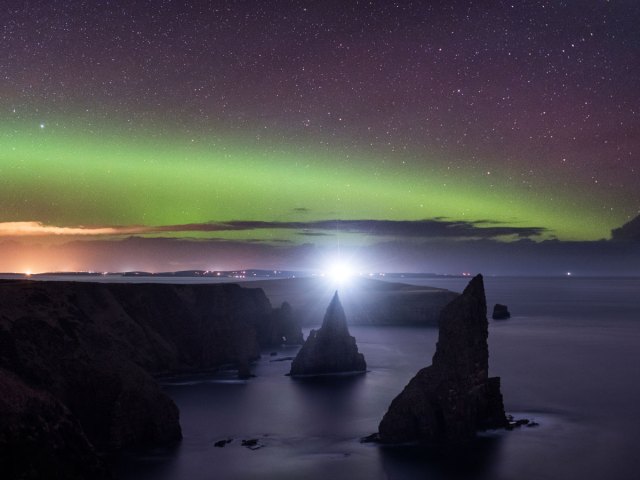
At the northernmost tip of mainland Scotland is a region known as Caithness, an isolated, historic county known for its dramatic coastline. This remote part of the United Kingdom also happens to be one of the best places to see the northern lights. Situated at a northern latitude of 58 degrees, Caithness is as far north as Stavanger, Norway, and the Alaskan peninsula, making it an ideal location for the lights to appear. In this part of the world, the northern lights are referred to as “Mirrie Dancers,” named for the ways in which the brilliant lights move across the sky.






